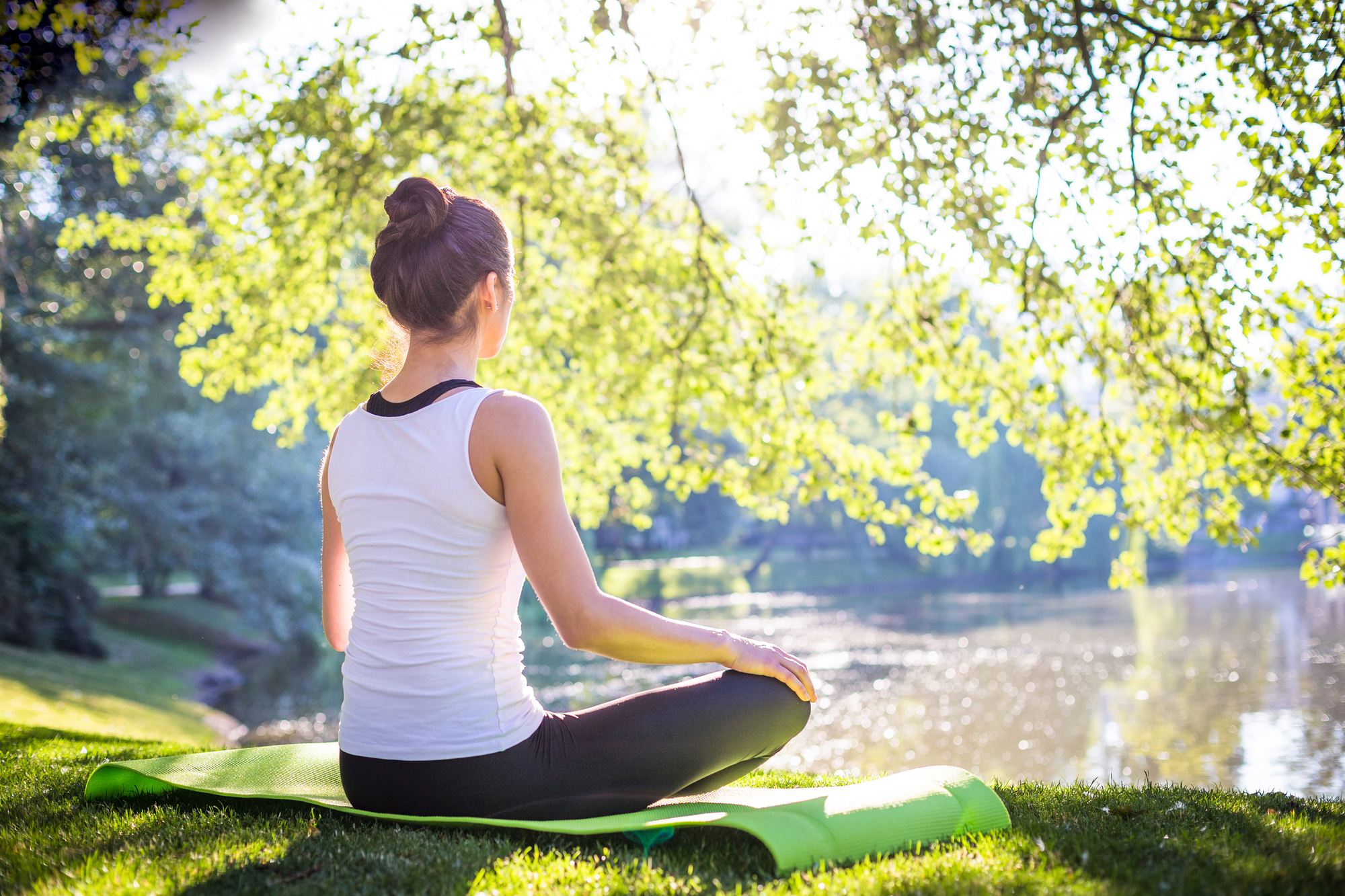It can feel like you’re constantly running around without being able to catch your breath in the fast-paced modern world. This can challenge your well-being and make you feel frustrated, distracted, depressed, and disrupt your spiritual calm.
What is inner peace? It is all about balancing your physical, mental, and emotional levels. Here are some tips to achieve inner peace in everyday life.
1. Get Enough Sleep
Sleep is necessary for the body to function properly. It not only provides the physical body with a chance to recover, but also allows the mind to recover from the everyday stressors you face.
Although it is commonly taught that eight hours of sleep is the ideal amount every night, this may not be accurate for everyone. The amount of sleep an individual requires can differ from person to person. It is important to find out how many hours of sleep you need. It might be more than eight hours.
It is important to make sure your room is dark and free of distractions if you want to sleep well. cooler temperatures make it easier to fall asleep and stay asleep than warmer temperatures.
It can take some time and experimentation to find the ideal sleep situation for you. But once you find it, you’ll notice an improvement in your mental health and you’ll be better equipped to face the challenges of the world.
As a natural dose of melatonin, Apothe-Cherry promotes a deep and restful night’s sleep.
2. Drink Some Water
About three quarters of Americans don’t drink enough water every day. The amount of water you need to drink depends on your age, gender, activity level, and other health factors. The average person needs eight cups of water a day.
Even mild dehydration can have adverse effects on your health, such as fatigue, headaches, irritability, and confusion. These symptoms can make it difficult to focus on work or enjoy leisure time.
When you’re feeling stressed, take a moment to drink a glass of water. This will help to re-balance your mood. It’s also a good idea to drink water throughout the day as it gives you an excellent reason to take a short break.
If you don’t like drinking plain water, try flavoured water instead. You can create refreshing fruit, herb, and vegetable-infused water by adding these items to your water. Cucumber or mint water is cooling and refreshing, while lemon or ginger water can give you a zap of energy.
3. Avoid Screen Time Before Bed
It may be tempting to watch some TV or spend time on your smartphone before bed because it feels like it should be relaxing. However, this type of stimulation can actually make it harder to fall asleep.
Using screens before bed prevents the brain from relaxing, as it remains active. For example, watching the news can lead to worries about global events. If you want to reduce stress before bed, take some time away from the day’s events.
The light from screens confuses your body into thinking it is still daytime, which can prevent sleep-assisting hormones like melatonin from triggering.
If you want to get a good night’s sleep, try turning off your TV or putting down your phone half an hour before bed. This will help your body realize that it is time to go to sleep.
4. Exercise Regularly
Exercise is not only good for your physical health, but also for your mental health. When you exercise, certain stress hormones, like cortisol and adrenaline, are reduced. In addition, exercise increases endorphins, which are chemicals in the body that can improve your mood.
While it’s true that many people don’t get enough exercise, it’s easy to work it into your day-to-day life more than you might think.
You can improve your mental health by doing things like taking short walks, swimming a few laps, or stretching. It’s important to find an activity that you enjoy so that you don’t dread it.
Check out Health Surgeon’s Calories Burned Calculator to find out how many calories you are burning doing over 100 different activities.
Although you don’t have to exercise every day, it is important to do so on a regular basis. Try to include a variety of activities in your routine that offer endurance, flexibility, strength, and balance.
Varying your exercises helps to maintain your interest and has positive effects on your overall health.
5. Practice Meditation
When it comes to finding inner peace, meditation is often the first thing that comes to mind. This is because mindfulness meditation has been used for centuries to help calm the mind and rejuvenate the spirit.
Nowadays, it’s easier than ever to find resources to help with meditation. There are many meditation apps that offer guided meditation, which is useful for beginners. Most workout subscriptions, such as Peloton and Apple Fitness+, provide instructor-led meditation sessions.
In addition to online videos, you can also find in-person teachers and meditation podcasts.
In order to start practicing meditation, all you need is a couple of minutes of your time. You can use it to take a break when you start to feel stressed, as well as setting aside time each day to practice regularly.
Get comfortable, relax, and clear your mind of distractions.
6. Declutter Your Surroundings
If your life feels chaotic, take a look at your surroundings. A cluttered home or work environment can add stress to your body. Simple tasks like finding your keys or a bill you need to pay can become more stressful if you have to spend extra time trying to find the items you need.
Your shoulders may tense up and your breathing may become shallower. The first step to decluttering is to simply take a good look around your house and identify the areas that need attention. If you’re constantly looking at clutter around your house, it can stressing you out on a mental level. Even if you don’t say it out loud, you will be thinking about how you probably should file those papers or clean off that table. Your shoulders may tense up and your breathing may become shallower. You may even feel guilt about leaving things undone.
There are a few key places to start decluttering if you don’t have time to do your whole house. Your bedroom should be a relaxing place, so start there. A cluttered workspace can be stressful, so declutter that area to help reduce stress.
If you avoid letting clutter build up over time by taking a few moments each day to put things away, it will be much easier to keep your space clean.
7. Embrace A To-Do List Lifestyle
Do you ever feel like you’re forgetting something? If you’re constantly feeling like you’re behind, try making a to-do list.
For things that need to be done soon, but not immediately, have a list in a central part of your house that you and others in your household can add tasks to. Before you go to bed every night, jot down a list of tasks to accomplish the next day.
To-do lists are a helpful way to see which tasks require your attention and to prioritize what needs to be done. You can also use them to identify tasks that can be completed with minimal effort.
For every task you complete, you can cross one item off your list. You can feel a sense of accomplishment when you check off items on a to-do list.
Even on days when it feels like nothing goes right, being able to check things off your to-do list is a reminder that you did get some things done.
8. Talk Out Your Feelings
It can help to hear your own thoughts out loud to gain clarity. A burden shared is a burden halved. In other words, it’s easier to handle a problem when you talk to somebody about it. So try talking to a friend or family member the next time you’re feeling stressed about something. And if you don’t have anyone to talk to at the moment, try talking to yourself out loud. It might seem strange, but it can actually help you to hear your own thoughts more clearly.
If you find yourself thinking about something obsessively, try speaking the thoughts out loud. Doing so may help you to release the thoughts and the stress attached to them.
If you need to talk to someone about a problem, let them know if you want advice or if you just need to vent. In some cases, just talking about the problem can help you feel better.
You can learn about other people’s perspectives on a situation by talking to them. They may have a different perspective than you, which can give you a new perspective on the situation.
9. Listen To Music
Relaxing music can help ease the negative symptoms of ADHD in children. It’s not essential what type of music it is, so long as the child enjoys it and it has a soothing effect.
Music is a way to soothe the soul and to find peace of mind instantly.
Researchers have found that listening to music can change brain function in a way that is similar to medication, with Celtic, Native American, Indian stringed instruments, flutes, and drums, as well as sounds of thunder, rain, and light jazz being particularly effective.
What are you waiting for? Get some headphones and listen to songs like these.
10. Deep Breathing
Focusing on your breath draws your attention to the life-enhancing process of taking in air and exhaling.
Inhale slowly and deeply through your nose, feeling your stomach expand. Exhale through your mouth, pushing out as much air as you can while contracting your stomach.
11. Go for a Walk in Nature
There are many benefits to spending time outdoors, including improved mental health and peace of mind. Taking a break to get some fresh air and exercise, especially when the weather is nice, can be very helpful. Too much time spent indoors, surrounded by concrete, is not good for people.
If you want to feel younger and happier, spend some time in nature. You don’t have to travel far to do this – simply listen to the birds singing and enjoy the peace and quiet.
Go for a walk in your neighborhood or to the park near your house.
12. Play With a Pet
A pet can help de-stress by providing a way to play and be touched. Touch is a powerful sense that can help reduce tension and create a sense of peace.
A study found that even people with mental health conditions reported feeling less anxious when they were around animals.
If you have a pet, hold them close to you. This will make you feel better and release endorphins into your body.
You can care for your dog with Epi-Genius Dog – These pure ingredients help to enhance digestion and reduce doggie breath and gas.
13. Acceptance
It is important to accept that there are few guarantees in the world in order to have peace of mind. Learning to tolerate uncertainty is a big step in being at peace with oneself.
Differentiate between what you can and cannot control.
14. Mindfulness
If we are more mindful of the present moment, we can worry less about what might happen in the future. Paying attention to our five senses–touch, taste, sight, hearing, and smell–can help us be more present.
You can practice mindfulness by doing breathing exercises and meditation, and by focusing on one thing at a time.
15. Self-love
The better we feel about ourselves, the more peace of mind we have. We accept ourselves more and feel more comfortable in the world, no matter what situation we find ourselves in. We experience less insecurity, and as a result, our inner peace is enhanced.
Taking care of yourself emotionally is important and can be done in easy ways. For example, you can pamper yourself with a relaxing shower, spend some time indulging in a film, or setting a few calming candles around your room.
Loving yourself doesn’t have to be a big deal, but it does have to be something you do on purpose.
16. Be True to You
This is another important part of feeling calm and well. When we act in ways that match our thoughts and feelings, we are being congruent. This happens when the way we see ourselves and the way others see us are the same.
The issue arises when we have a certain view of ourselves (such as a caring mother) but act in ways that oppose that view (like ignoring our children because we’re preoccupied).
One of the ways to achieve peace of mind is to ensure that our ideals and actions are in alignment.
17. Sense of Humor
When you laugh, the world around you instantly becomes a better place. Laughter is a great stress reliever and can help release hormones that promote relaxation.
This doesn’t mean you should make jokes constantly or watch 10 comedy movies every day. It means changing your perspective.
18. Love Unconditionally
It is easier to love someone when you do not expect anything in return. If we love with conditions attached, we may get angry or upset if those conditions are not met.
Unconditional love is loving someone no matter what conditions are present. Unconditional love is when you love someone no matter the conditions. This is opposed to conditional love which is when you only love someone if they meet certain conditions that you have set.
If you only love someone conditionally, it creates expectations that aren’t often met, which leads to unhappiness, resentment, and conflict.
19. Go for Regular Health Check
You cannot simply tell yourself that you want peace of mind and expect it to happen, you have to actively do something about it.
It’s important to stay healthy and take care of yourself. Not taking care of yourself can show a lack of self-respect, and this can then affect the way you see the world and how others interact with you. Be good to yourself and make the most of what you have.
If you’re short on time and can’t visit a doctor in person, you can use technology to your advantage. There are many health apps that offer remote health consultations.
Read more: The Importance Of Regular Health Screenings As We Age
Final Thoughts
The best ways to achieve peace of mind are being honest with yourself, accepting that life is unpredictable, and monitoring your thoughts. A lot of us cause ourselves mental anguish every day by the things we say to ourselves.
If you want to achieve inner peace, you should focus on the positive things in your life and be grateful for what you have. Try not to dwell on negative thoughts.
READ MORE: Fitting In Fitness: How To Make Exercise Part Of Your Daily Life









